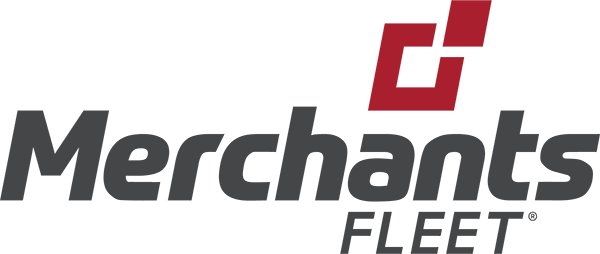Is Fleet Management Telematics Worth the Cost?

Fleet telematics is an easier way to translate data into measurable, actionable insights that can lead to significant benefits. But is fleet telematics really worth the cost? Read on to see if the investment is right for your business.
- What is Fleet Telematics?
- 8 Ways Fleets Are Benefiting from Telematics
- The Cost of Fleet Telematics
- How to Get Started with Fleet Telematics
What is Fleet Telematics?
Telematics is technology that combines telecommunications and informatics to gain valuable insights into a business’ operations. TechTarget describes telematics as, “the integrated use of communications and information technology to transmit, store and receive information from telecommunications devices to remote objects over a network.”
Telematics is widely used in the automotive industry as a tool for managing and monitoring vehicle operations, location, and performance. This is achieved by installing the following tools:
- Sensors: Detect driver behaviors (like aggressive acceleration) and interior vehicle activity (like a door opening or the temperature of a trailer).
- GPS Tracking: Identifies statuses like a vehicle’s location and speed.
- Engine Diagnostics: Gather performance information like fuel efficiency and mileage.
These tools store data, which is transmitted and then visible via software at a fleet’s headquarters for the fleet manager to monitor. Along with fleet management software, telematics gives fleet managers the full picture of each vehicle’s performance and every driver’s behavior on the road.
What Can Fleet Management Telematics Do?
- Vehicle sensors are able to tell how long a truck spends idling, which can help identify and reduce excessive fuel spend.
- Telematics data can show improved safe driving behavior trends, which fleet managers can leverage with insurance companies to potentially lower premiums.
- Fleet managers can set thresholds for speeding to monitor and enforce good driving behavior.
- Real-time alerts can be set up to notify fleet managers of route delays, accidents, or unsafe driving behaviors.
- Drivers can track their hours of service and fleet managers can detect if a vehicle is driven after hours.
- Fleet telematics helps companies comply with the Federal Motor Carrier Safety Administration (FMCSA) requirement that all commercial vehicles must use electronic logging devices (ELDs) to track drivers’ hours.
- Accounting can monitor and verify expenses to detect fraud and set up quantitative goals with expense reports.
8 Ways Fleets Are Benefiting from Telematics
How fleets use telematics will vary based on the company’s goals, which can evolve over time. Below are eight of the most common goals for fleets of any size:
- Improve Safety: The safety ROI of telematics can be difficult to prove because many of the benefits are preventative, such as discouraging harsh driver behaviors. However, cost savings can be achieved by changes in behavior, which can then:
- Reduce Accidents
- Reduce Fuel Spend
- Reduce Speeding Tickets
- Lower Insurance Premiums
- Eliminate Non-Preventative Maintenance Needs
- Contest False Claims to Exonerate Drivers
- Prevent Fraud: Fleets using fuel cards can use telematics to keep a close eye on transactions and add an extra layer of fraud prevention to their operations. A GPS tracker acts as proof that a driver was at a pump, filling up their tank, instead of the fuel card being used without a vehicle being present.
- Upgrade Maintenance Practices: What if a vehicle in your fleet could notify you that its battery is dead, or that it is due for an oil change before a driver even begins their shift? A telematics system can send alerts using diagnostic trouble codes from the vehicle when there are mechanical issues, allowing you to address the problem quickly and reduce downtime. Telematics will also alert you of upcoming maintenance needs and make it easier to schedule preventative maintenance appointments. This will help you avoid maintenance lags and keep your vehicles up-to-date on service appointments.
- Reduce Fuel Spend: Optimizing fuel spend is crucial to keep operating costs down. According to Automotive Fleet, gas and diesel fuel prices were the number one reason for the increase in total fleet operating costs in 2018. Telematics can detect excessive fuel use, help you establish more direct route plans, and reduce engine idling to improve the efficiency of your fuel.
- Decrease Emissions: Cutting down on fuel costs means your vehicles will burn less CO2, thus reducing your emissions.
- Enhance Route Capabilities: Telematics can locate vehicles closest to a point of interest. Add-on features can include route efficiency and route adjustments based on weather patterns or traffic to ensure that your drivers are able to reach their destinations on time.
- Cut Administration Tasks: Electronic driving logs eliminate the need for manual practices. With all of your fleet data stored electronically, it will be quicker and easier to run reports and analyze information.
- Increase Accountability: Accounting will be able to monitor and verify purchases made by drivers on the road. If a driver reports making a $75 purchase at a gas station, but GPS shows they were not at the location at the time of purchase, there will be concrete data to back up a fraud claim. In addition, timecard reconciliation will verify when a driver was working compared to when they clocked in and out.
The Cost of Fleet Telematics
The cost of a fleet telematics solution will depend on several factors:
- The Size of Your Fleet
- The Features You Need
- The Vendor You Select
There will also be several different costs to consider.
- Hardware: Devices for fleets come in plug-and-play and hardwired formats.
- Installation: Most technologies will require professional installation to ensure that the devices and software are connected properly.
- Monthly Subscriptions: Your contract with a telematics provider will have term limits that cover the cost of the device and cellular data to transmit vehicle information. Some subscription plans will also bundle the cost of installation into a monthly fee.
A plug-in GPS tracking device for one vehicle may cost $35 a month or more, while a vehicle that is already equipped with a telematics device could be significantly less.
When it comes to costs, keep this in mind: Telematics requires an initial investment to set up and implement, but the detailed insights you can achieve will present an opportunity to optimize your fleet to achieve significant cost savings.
How to Get Started with Fleet Telematics
Telematics can be installed in all sizes of fleets and any type of vehicle, including:
- Compacts and Subcompacts
- Sedans (Mid-Size and Full-Size/4-Door)
- Luxury Compact and Mid-Size Sedans
- Pickup Trucks (Light-Duty, Medium-Duty, and Heavy-Duty)
- SUVs
- Crossover Vehicles
- Cargo Vans
- Passenger Vans
- Wheelchair Conversion Vans
- Hotel Shuttle Vans
Pilot Programs: Proving the Worth of Telematics
As you are getting started, consider launching a telematics pilot program for a small selection of your vehicles. Installing the technology in a few vehicles (the number will depend on the size of your entire fleet) for a span of a few months will be a low-risk way to evaluate the effectiveness of a telematics program and establish a baseline for a full fleet roll-out.
Lower fuel costs and emissions, fewer accidents and administrative tasks, and better vehicle performance are only a few of the great outcomes of incorporating fleet telematics. Whatever your business goals may be, Merchants Fleet is here to help you tap into your fleet’s endless amount of data to create a detailed view of your operations.
Our fleet management telematics solutions can be scaled and customized to fit your business’ specific needs and goals. Contact us today to discuss the cost and benefits of fleet telematics for your business.




